In the field in Cameroon: Getting the off-take to take-off
Deze content is in het Engels. Wil je meer informatie? Neem dan contact op!
In July 2023, I travelled again to Cameroon - home to 49,000 km of the TRIDOM – a protected tri-national forest area that also spans into Gabon, and the Republic of Congo. While the TRIDOM is a protected area, its peripheries are at constant risk of encroachment and deforestation, posing a threat to its Indigenous peoples and large mammal population, including elephants, gorillas and chimpanzees.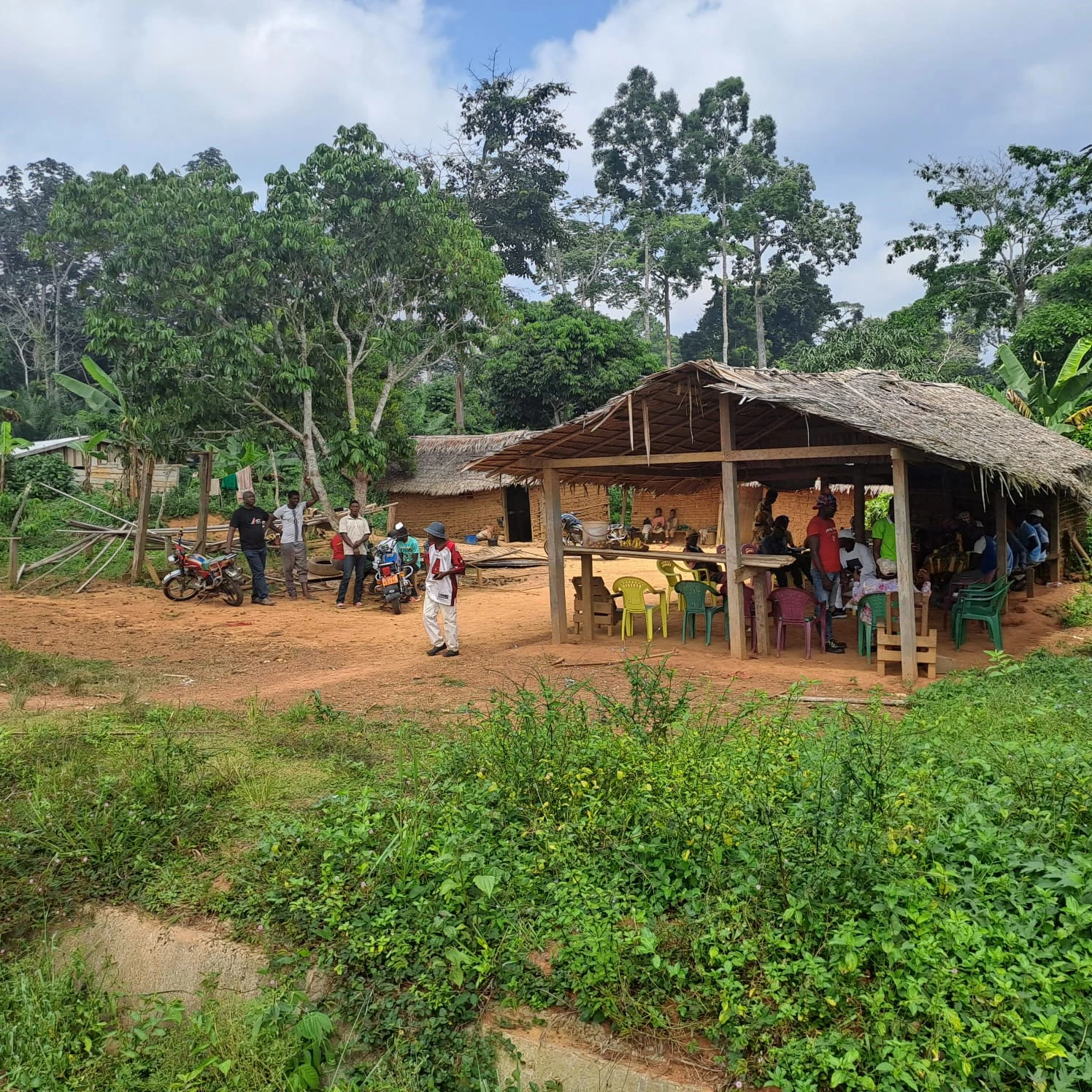
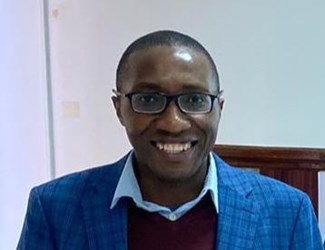
Close to fifty percent of Cameroonian rainforest has been subject to exploitation over the past thirty years. However, in order for more protective forestry methods to become widespread, they also need to become more financially viable for local populations. I have written previously about our efforts to connect local smallholder farmers there with premium Dutch cocoa distributors, to help increase smallholder livelihoods in the area, while also promoting climate resilient agriculture methods.
My travels primarily took me to Mintom, some 360km east of the capital of Yaoundé. There, I met local farmers’ cooperative, SOCOCAM, to facilitate talks between them and a potential cocoa buyer from the Netherlands, Crafting Markets, to identify the next steps necessary to develop a lasting business relationship.
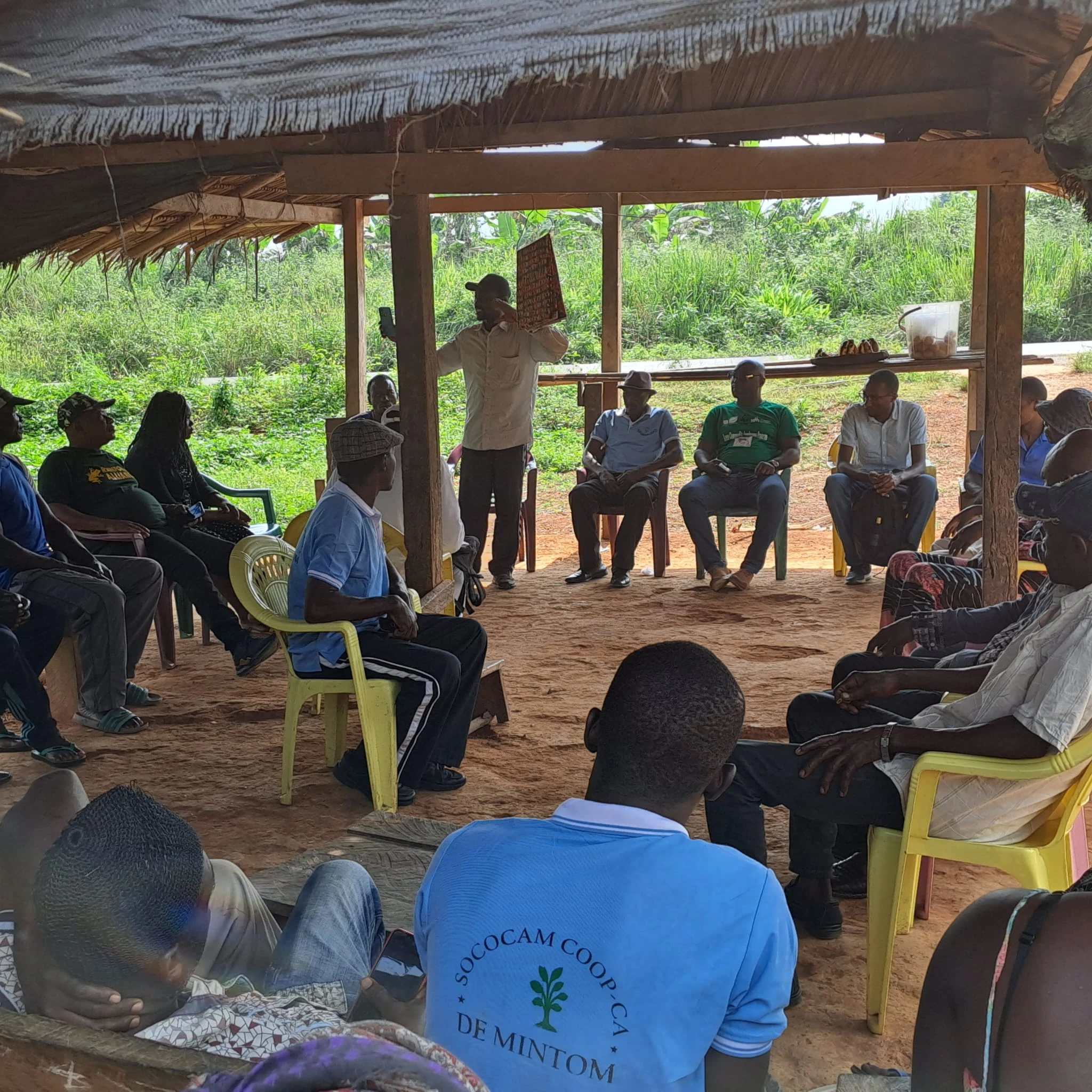
Meeting SOCOCAM farmer cooperative. © Shephard Andrew Zonde / WWF-NL
Cocoa farming: a livelihood helping to protect the forest
The SOCOCAM cocoa cooperative was established in 2021 and is located in Mintom, a town and commune in southeastern Cameroon. The cooperative is a collective of 98 communal farmer members (68% men and 32% women). Individual plot sizes range from 0.5 to 15 hectares. By last year’s estimate, the production capacity of the cooperative is about 41 tonnes a year. Potential for higher yields is great.
Farmers employ a cultivation model of relatively dense agroforestry, consisting of a mix of exotic fruit trees, such as bush mango and avocado, as well as some food crops. Most smallholder cocoa (SOCOCAM) farmers in TRIDOM have, for various reasons, generally not used synthetic fertilisers for a long time, deeming the farming organic by default. With improved practices and post handling capacity to ensure its quality there is potential to increase incomes significantly.
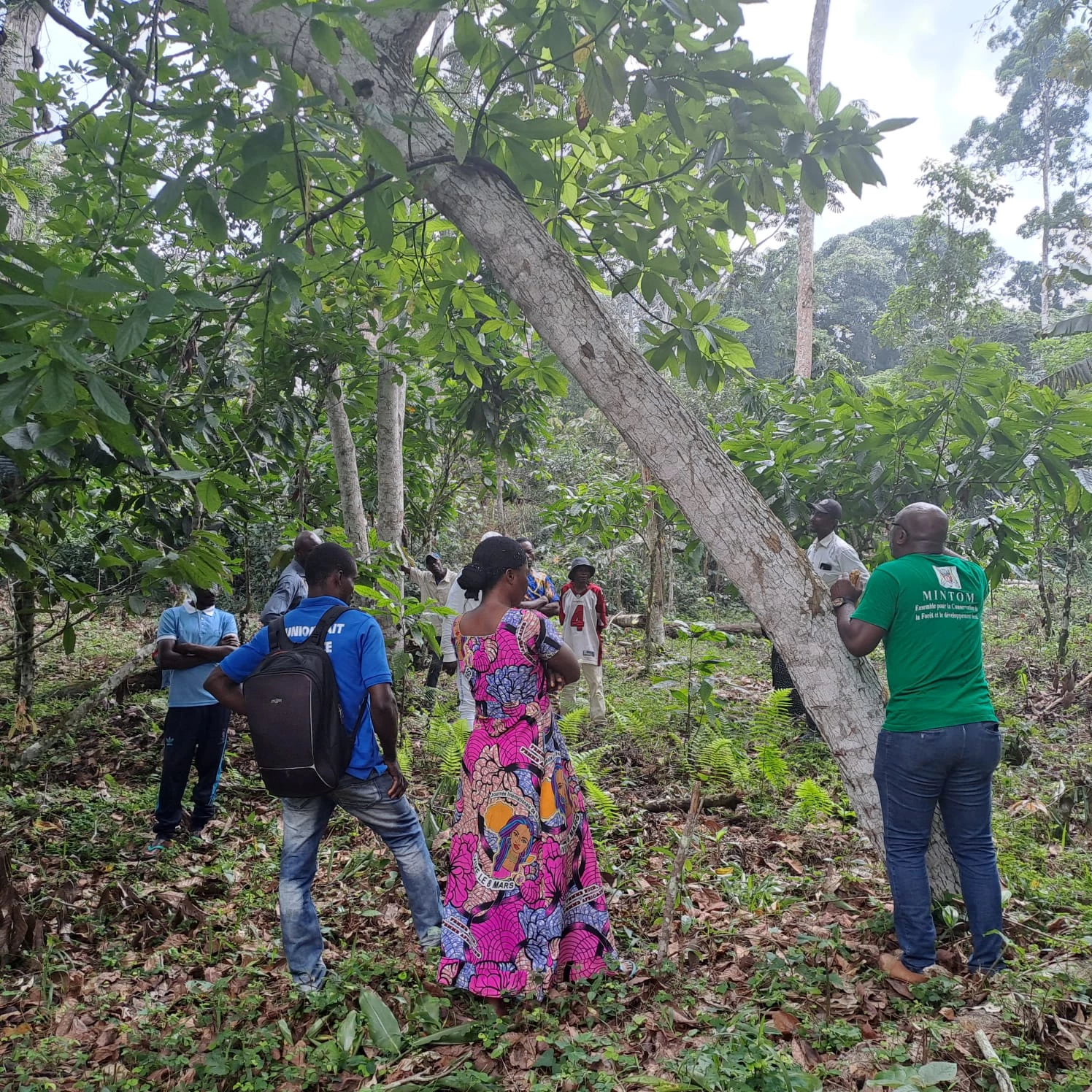
Roberty Essama of MoMo4C and WWF-Cameroon leads a tour of a women-owned cocoa plot. Agroforestry employed consists of a mix of exotic fruit trees, such as bush mango and avocado, as well as some food crops. © Shephard Andrew Zonde / WWF-NL
Crafting Markets: cocoa trader standing for fair trade and impact
Based in the Netherlands, Crafting Markets builds long-term relationships with smallholder farmers around the world, sourcing cocoa, and connecting them with flavour-oriented chocolate makers. The company’s vision is to pay farmers a fair price and make a positive social and environmental impact in their source regions. Operating in the higher end of the chocolate industry means, however, they only source beans of the finest quality. To maintain good business relationships with the chocolate makers on the other end, they rely on the cocoa farmers to produce consistent quality of premium grade beans.
Under the facilitation of the MoMo4C programme, Crafting Markets has expressed an intent to off-take cocoa beans from the SOCOCAM cooperative at a premium in the near future. Their plan includes showcasing these beans in the European market and effectively highlighting SOCOCAM’s initiatives and narrative. Both parties need to figure out if a partnership is feasible and further groundwork needs to be carried out.
Launching a pilot scheme
The main purpose of my trip was to officially launch a pilot support programme, meant to build on the management capacity of the SOCOCAM cooperative. In really positive back and forth engagement over the days, the parties laid out their expectations for the short and long term.
Key is the investment facilitated by MoMo4C into pre- and post-harvest handling infrastructure for the cooperative. One centrally run fermentation, drying and storage unit will be built at a site identified by the cooperative members in Mintom. Farmers will receive technical assistance on the fermentation, drying and storage processes that cater for the high-quality, specialty market. A local contractor, Centre d’Information et de Formation pour l’Environnement et le Développement (CIFED) has now been contracted to begin construction and related farmer trainings. This should help farmers to gradually improve the quality of harvested beans, ensuring they meet the stricter quality demands for specialty markets on a consistent basis.
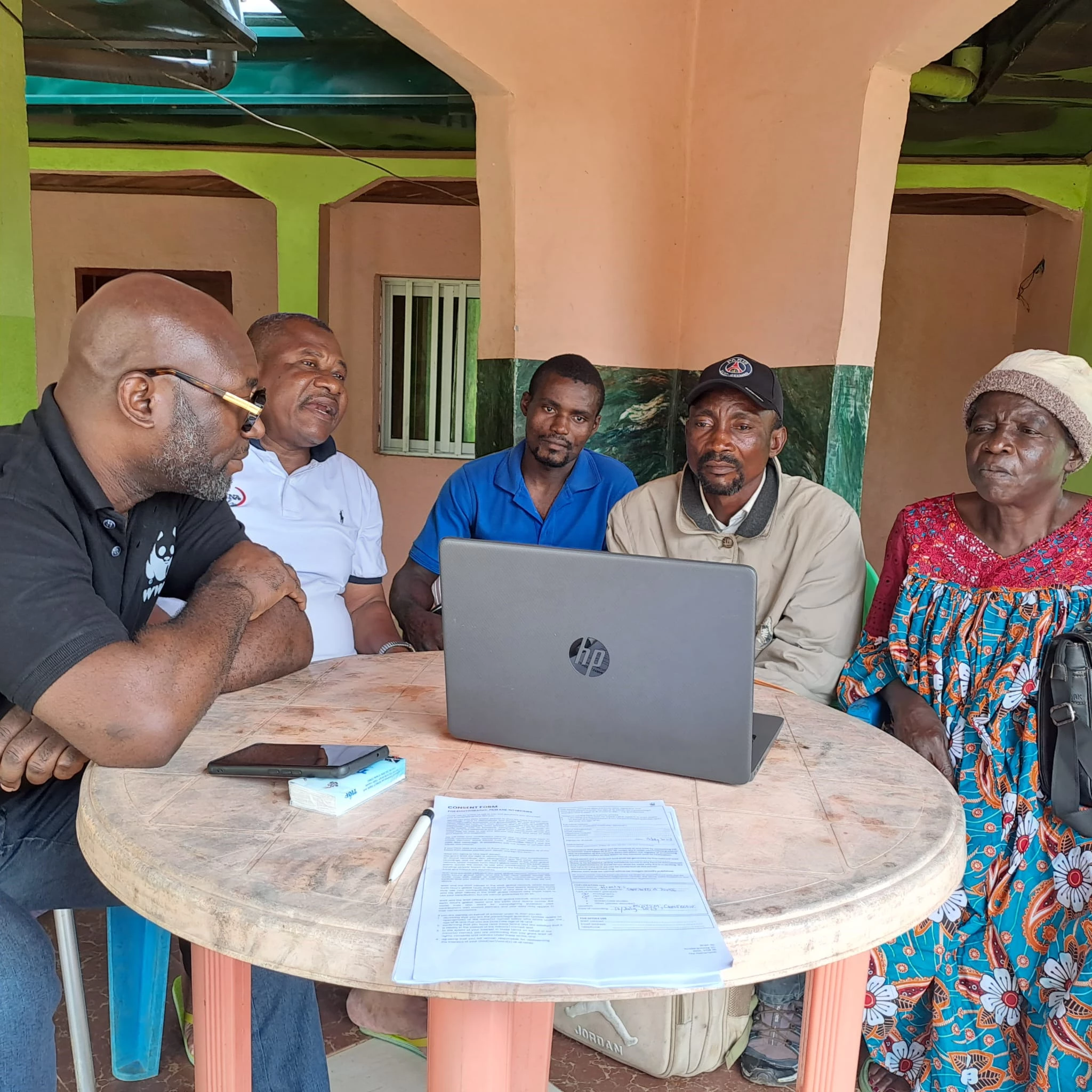
SOCOCAM management team (President Eloundou Casimir Alain, Treasury Ngah Efouba Epse Menye Marcelle and Secretary Ofono Fouda Joseph Parfait) meets Crafting Markets’ Founder and Director Albert Smith and Cristina Castellanos Stephens (communication) online. Also in the picture are Roberty Essema (MoMo4C / WWF-NL Cameroon) and Daniel Ellom (CIFED).
Supply and demand meet: intent to off-take
The trip involved a lot engagement with the key stakeholders: Founder and Director of Crafting Markets Albert Smith, the SOCOCAM management team, including the cooperative’s President Eloundo Casimir Alain, and MoMo4C Cameroon Project Manager Robert Essema.
All in all, my weeks in Cameroon were as interesting as they were productive. From tasty local dishes of plantain, to random chats with farmers and colleagues about cocoa, the great Cameroon football team of back in the days and the music legend Manu Dibango, nothing was off limits.
To the task at hand, it’s clear the enthusiasm is high, with all parties eager to start. There is momentum on the ground which should make updates in the next month(s) worthwhile to anticipate.
About MoMo4C
Mobilising More for Climate (MoMo4C) supports private sector companies, both locally and internationally, in creating or scaling innovative business models that benefit local communities and combat climate change. MoMo4C is managed by IUCN NL, WWF-Netherlands and Tropenbos International, and is funded by the Dutch Ministry of Foreign Affairs.
